9 Best Market Research Tools for 2025
Discover the 9 best market research tools for 2025, featuring essential features, pricing, and insights to enhance your research capabilities.

Discover the 9 best market research tools for 2025, featuring essential features, pricing, and insights to enhance your research capabilities.

Having the right market research tools is essential for making informed decisions. With an increasing reliance on data-driven strategies, choosing the best tools can significantly impact your success.
In fact, studies indicate that businesses utilizing effective market research tools are 60% more likely to achieve their goals.
In this guide, we’ll explore the top 9 best market research tools available in 2025.
The evaluation process for the best market research tools focused on these key criteria:
The methodology included thorough testing, expert consultations, comprehensive online research, and data analysis to ensure that each tool listed meets the needs of potential users effectively.
Software | Best For | Key Features | Pricing | Free Plan | Platforms Available |
|---|---|---|---|---|---|
Creating engaging surveys | Customizable templates, analytics, sharing options | $25/mo (when billed annually) | Yes | Web, iOS, Android | |
Advanced data analytics | Multi-channel feedback, in-depth analysis | $150/mo (when billed annually) | Yes | Web | |
Interactive survey experiences | Logic jumps, multimedia support | $35/mo (when billed annually) | Yes | Web, iOS, Android | |
Accessing reliable statistics | Extensive database, customizable reports | $39/mo (when billed annually) | Yes | Web | |
User feedback and product insights | User onboarding, feedback widgets | $29/mo (when billed annually) | Yes | Web | |
Content research and analysis | Content discovery, influencer tracking | $99/mo (when billed annually) | Yes | Web | |
Data visualization and reporting | Interactive dashboards, data blending | $70/mo (when billed annually) | Yes | Web, Mac, Windows | |
SEO and competitive analysis | Site audits, keyword research, backlink analysis | $99/mo (when billed annually) | Yes | Web | |
Consumer insight generation | Visual keyword research, question generation | Free with limitations | Yes | Web |
Best for creating engaging surveys
SurveyMonkey is one of the leading survey tools that allows users to create customizable surveys quickly.
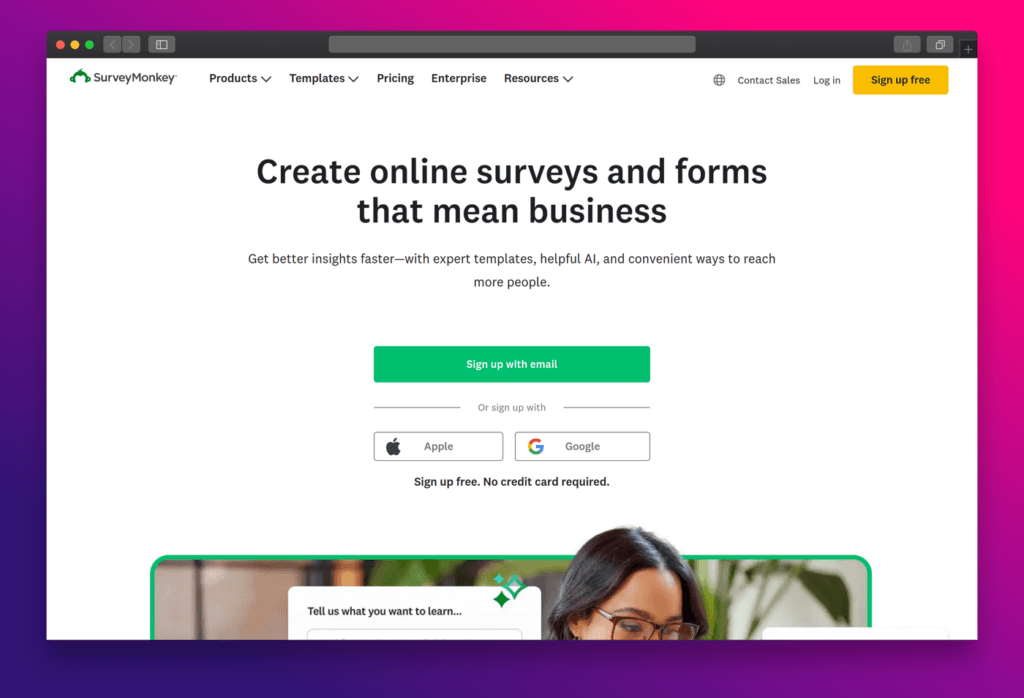
Its user-friendly interface and a variety of templates make it ideal for businesses of all sizes.
Whether you’re gathering customer feedback or conducting market research, SurveyMonkey provides insightful analytics to help you understand trends and sentiments effectively.
SurveyMonkey offers several pricing tiers:
Learn more about their pricing on the SurveyMonkey pricing page.
Best for advanced data analytics
Qualtrics is a powerful tool designed for sophisticated data collection and analysis.
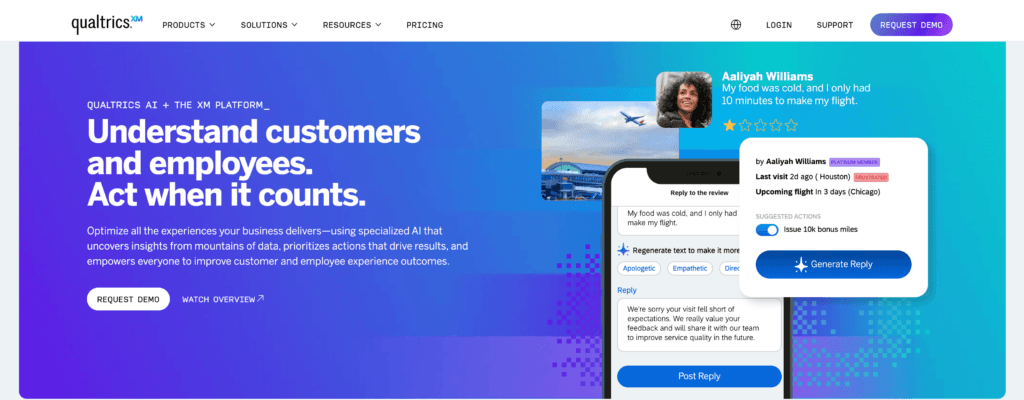
It is particularly favored by enterprises looking for in-depth insights into customer experiences. Qualtrics offers multi-channel feedback options and advanced analytical tools to make data-driven decisions.
Qualtrics offers customized pricing based on user needs. Contact their sales team for a tailored quote.
Best for interactive survey experiences
Typeform stands out for its visually appealing and interactive surveys. This tool enhances user engagement, making it easier to collect meaningful data.
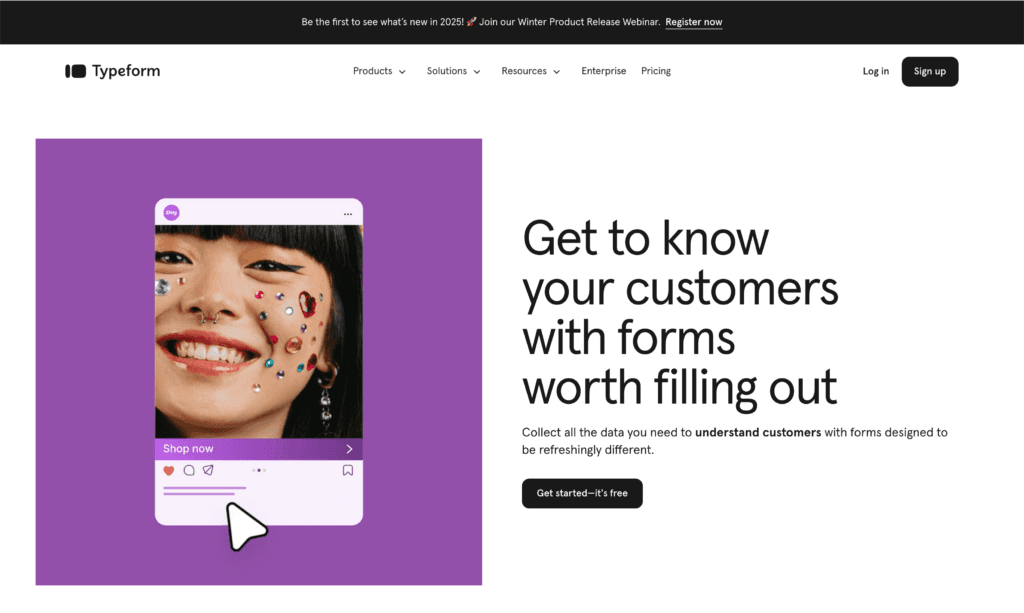
Typeform offers several plans starting from $26/mo, with a free tier available for basic surveys.
Best for accessing reliable statistics
Statista provides vast statistics and studies from various industries. This tool is essential for market researchers looking for credible data to support their insights.
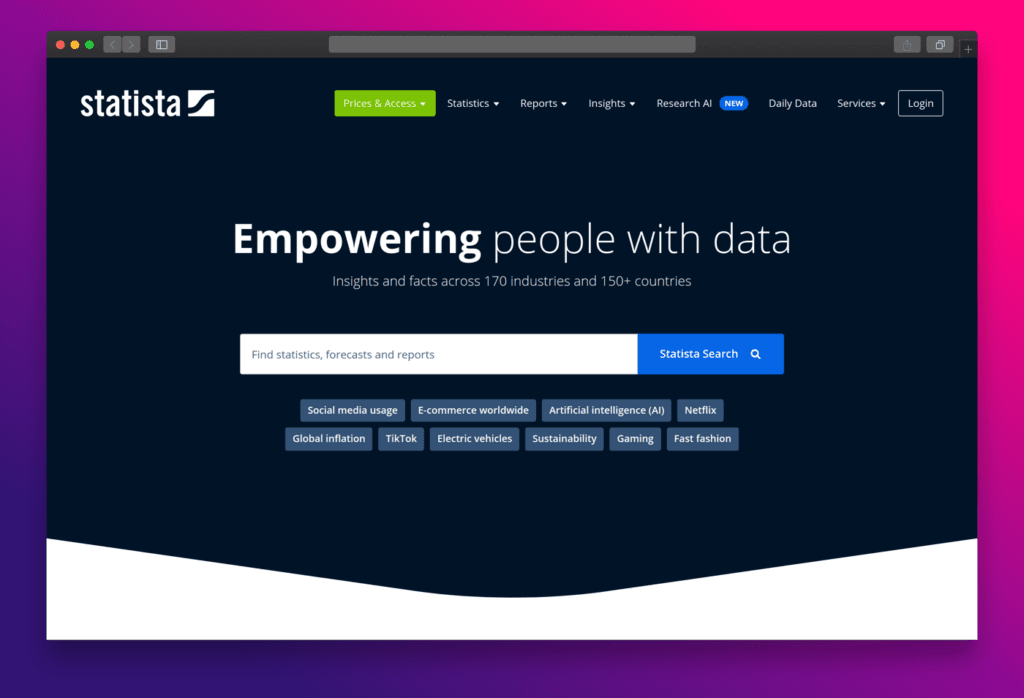
Statista offers a subscription starting at €199/mo for access to its extensive database.
Best for user feedback and product insights
Usetiful is a tool designed to help businesses gather user feedback and improve their products. It provides insights into user experiences, making it invaluable for product managers.
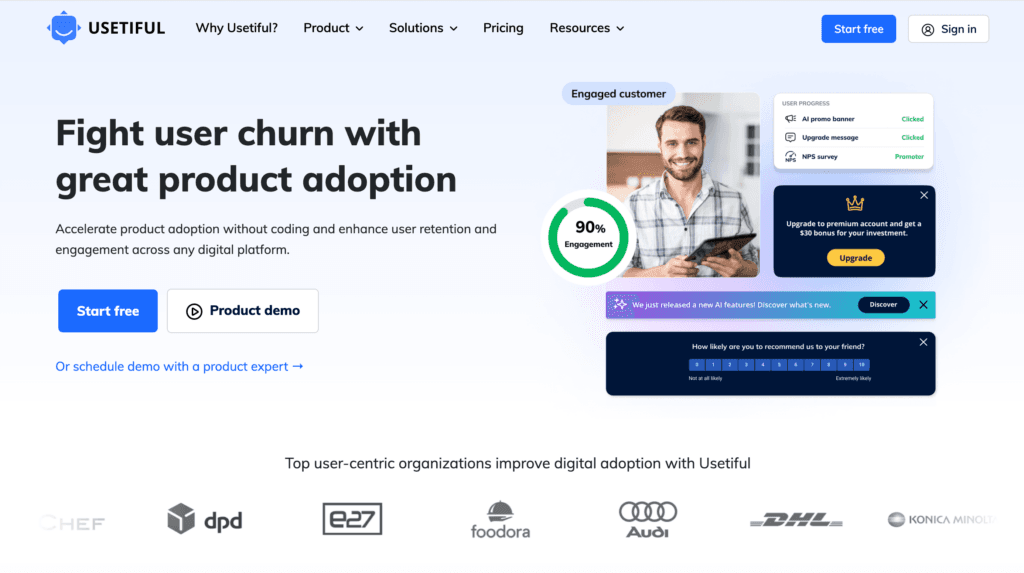
Usetiful offers plans starting at $29/mo, with a free tier available.
Best for content research and analysis
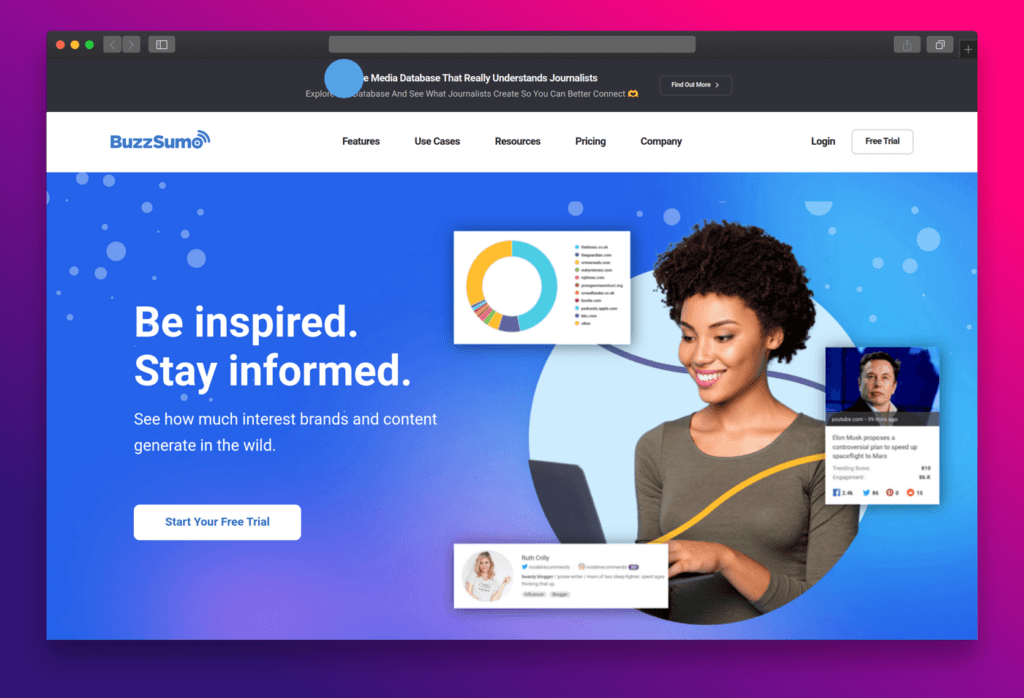
BuzzSumo is an invaluable tool for marketers looking to analyze content performance and trends. It helps identify what resonates with audiences and informs content strategies.
BuzzSumo offers plans starting at $199/mo, with a free trial available for new users.
Best for data visualization and reporting
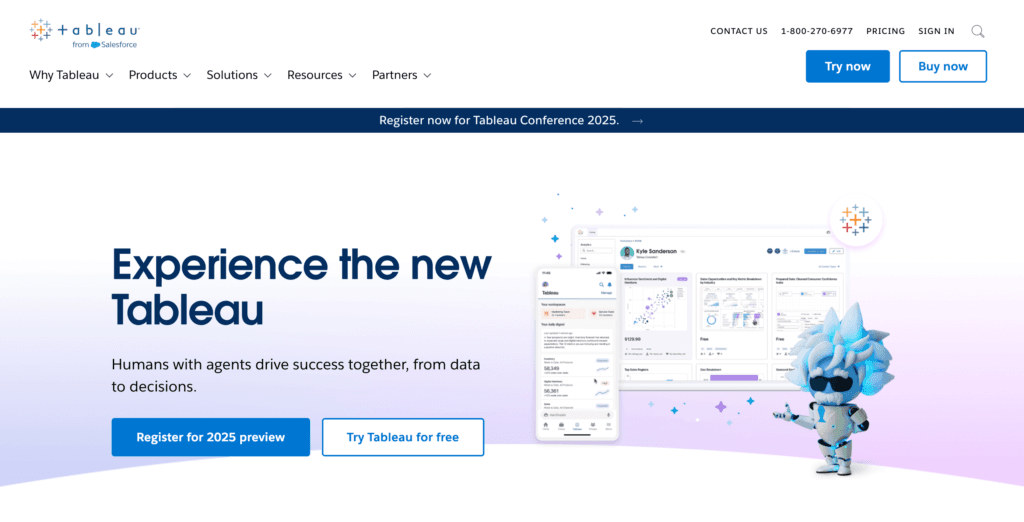
Tableau is a leading data visualization tool that helps users make sense of their data through interactive and shareable dashboards.
Tableau’s pricing starts at $70/mo, with a free trial available.
Best for SEO and competitive analysis
Ahrefs is a comprehensive SEO toolset that enables marketers to optimize their online presence and conduct competitive analysis. It’s particularly useful for content marketers and SEO professionals.

Ahrefs offers plans starting at $99/mo, with a 7-day trial for $7.
Best for consumer insight generation
AnswerThePublic is a unique tool that visualizes search questions and topics related to your business. It’s excellent for content creation and understanding consumer needs.
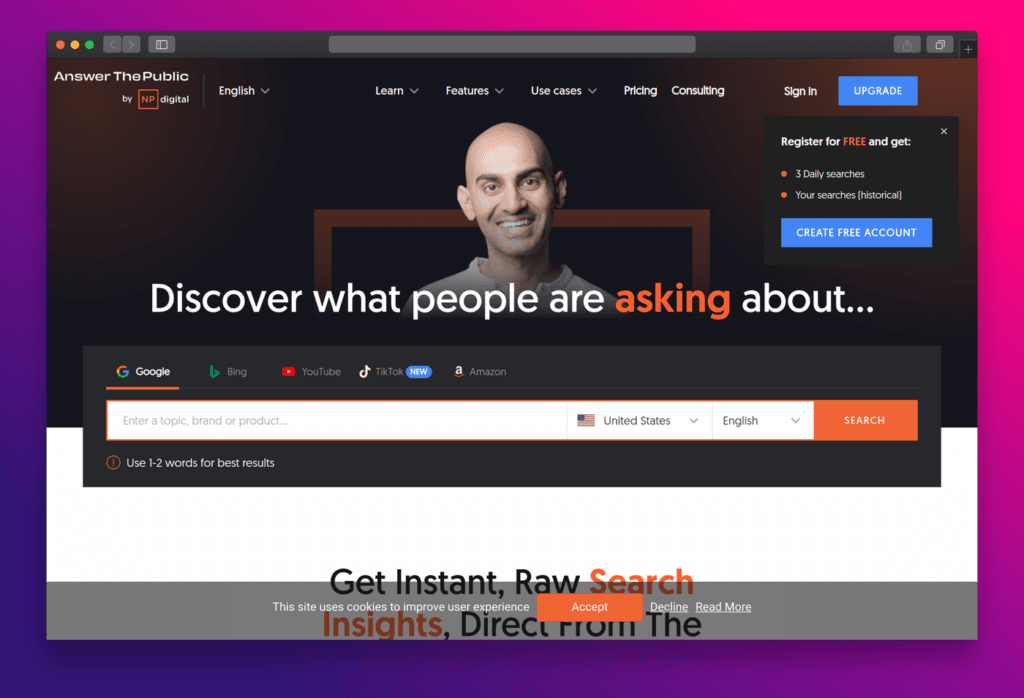
AnswerThePublic offers a free plan with limited features, while the Pro version starts at $99/mo.
Selecting the ideal market research tools depends on your specific requirements and use case. Consider these crucial factors:
Understanding these considerations will help you make an informed decision when selecting the best market research tools for your needs.
As we progress further into 2025, several trends are shaping the landscape of market research tools.
The integration of AI and machine learning is becoming commonplace, allowing for more sophisticated data analysis and predictive modeling.
Additionally, real-time analytics is increasingly important as businesses demand quicker insights to stay competitive.
According to industry reports, companies that adapt to these trends are 70% more successful in their market strategies.
Choosing the right market research tools can significantly impact your business’s success.
By evaluating your specific needs and considering the features of each tool, you can make an informed decision that aligns with your research goals.
Explore our top picks and evaluate which tools fit best with your business’s objectives.
The best tools vary by user needs, but popular options include SurveyMonkey, Qualtrics, and Typeform.
Consider your specific needs, budget, and the features that are most important for your research.
Yes, many tools offer free versions or trials, such as Google Trends, Ubersuggest, and AnswerThePublic.
Absolutely! Tools like Ahrefs and BuzzSumo provide excellent insights into competitive landscapes.
AI integration, real-time analytics, and user experience enhancements are key trends to watch in 2025.
Choosing the right market research tools can greatly enhance your understanding of your market and improve decision-making processes.
Evaluate your options and take the next step toward smarter research today!
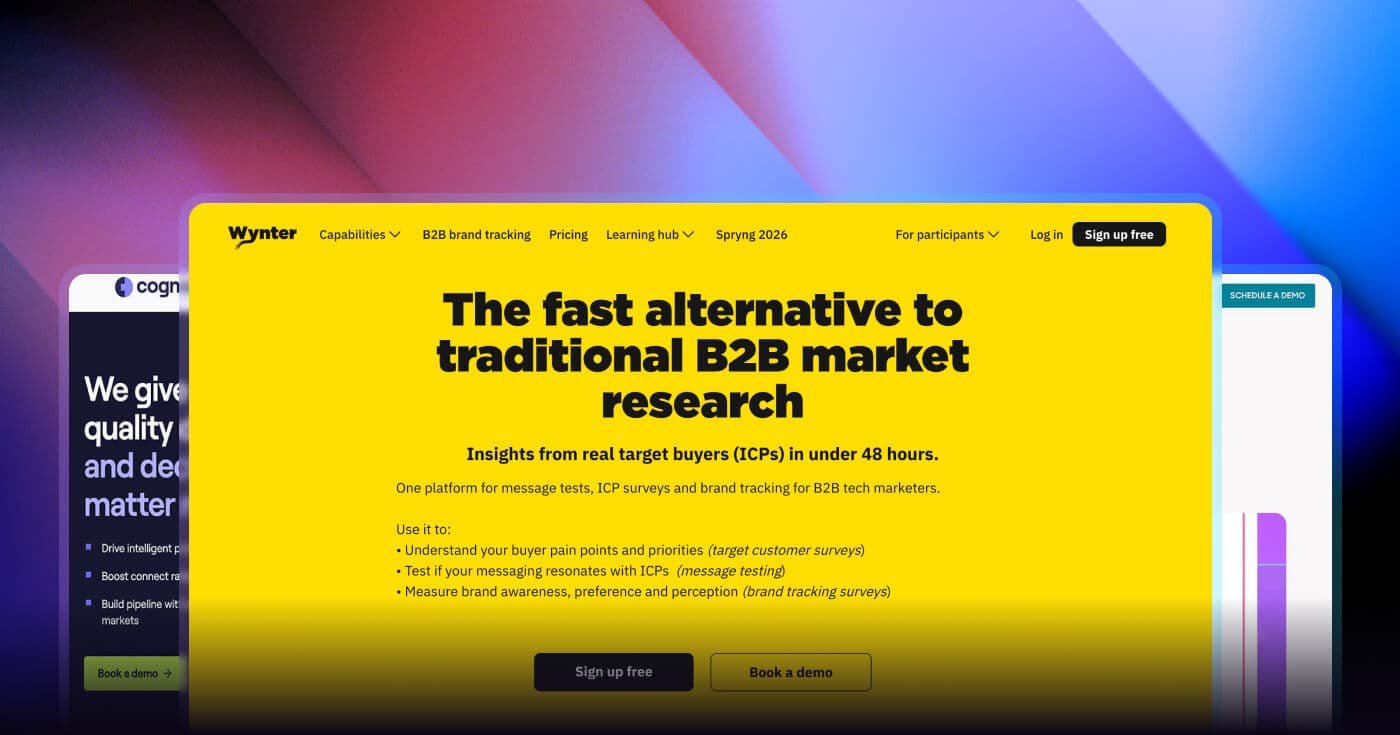
Discover the top 10 B2B market research tools for 2026. Compare features, pricing, and find the perfect solution for your business needs.

Discover the best consumer insights tools to elevate your business strategies this year.

Explore the top 10 APIs for marketers in 2026, featuring essential tools for automation, data enrichment, and streamlined integration.